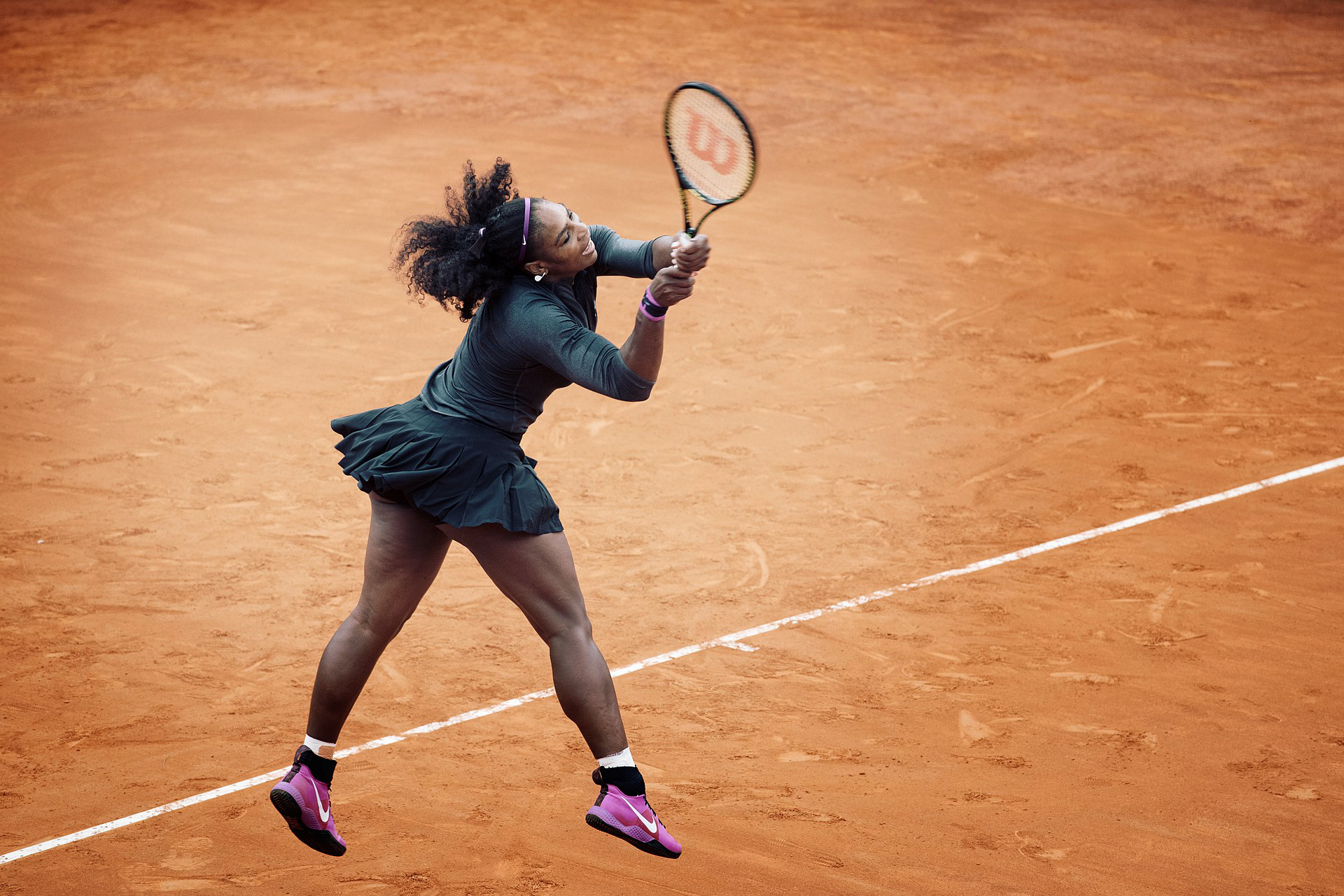Serena Williams faces controversy at the U.S. Open


Serena Williams is considered by many around the world to be one of the best professional female tennis players. The 36-year-old athlete holds multiple Grand Slam titles and has established herself as a respected woman in tennis.
Despite her illustrious sports career, however, Williams has made headlines over the past few weeks regarding her clothing choices and a $17,000 fine that has reduced her to a stereotype and joke in the eyes of several online critics.
French Tennis Federation president Bernard Giudicelli was quoted saying that the bodysuits Williams typically wore would “no longer be accepted … one must respect the game and the place.”
The fact that Williams’ outfits on-court are even being put into question is a ridiculously frivolous motion to begin with, but it’s made more questionable when her reasons for wearing them were health-related.
Williams noted that she wears form-fitting pieces in order to prevent the blood clots she has been experiencing after she gave birth to her daughter last year.
In response to the unnecessary critique, Williams graced the 2018 U.S. Open wearing an iconic black tennis dress and matching tutu statement skirt — a fashionable ensemble created by Louis Vuitton and Virgil Abloh in collaboration with Williams herself for Nike’s “Queen” collection.
Legendary former American top tennis player, Billie Jean King, tweeted her support by saying, “The policing of women’s bodies must end. The “respect” that’s needed is for the exceptional talent @serenawilliams brings to the game. Criticizing what she wears to work is where the true disrespect lies.”
This power move is one that put largely positive attention on the tennis star for her subtle ability to clap back at an outdated and sexist criticism. Yet, Williams was unable to escape scrutiny for long before she was accused of receiving tips from her coach during the U.S. Open final — something which she vehemently denies.
When the call was made during the match, she immediately argued against it with umpire Carlos Ramos, heatedly stating, “I don’t cheat to win, I’d rather lose. I’m just letting you know.”
When in doubt, people should refer to her appropriately labelled tennis bag that she was seen toting at the U.S. Open, “AKA QUEEN” and treat her as such.
She made three consecutive violations totalling $17,000: $4,000 for the coaching warning, $3,000 for smashing her racket in frustration and $10,000 for her “verbal abuse.”
The incident is one which many, including herself, are labelling as sexist. The supposed “verbal abuse” that Williams issued was from saying “You owe me an apology. I have never cheated in my life. You stole a point from me. You’re a thief, too.”
Male tennis players like James Blake have since spoken out on Twitter, claiming that they have said “worse” and never got penalized for it. The debacle is one which also sparked the creation of a Williams caricature drawn by Mark Knight and has since garnered its own slew of controversy for being “blatantly racist.”People were quick to tear apart the image over social media. As well as being an arguably racist depiction, the cartoon has been criticized by other artists.
Darrin Bell, an RFK Award-winning cartoonist, commented on the incident: “It’s not hard to caricature a black person. Just don’t do it like they did it 100 years ago.”
The offensive nature of the cartoon has added further fuel to the “angry black woman” stereotype that has played a role in the treatment of Williams since her sportsmanship and honesty were called into question — raising important questions of why these microaggressions are still acceptable.
Tennis has long been critiqued for being a “white man’s sport,” giving little allowance to women like Williams to show emotion or play the game as individuals worthy of the sport.Regardless of whether or not she would have won if the umpire had not penalized her, the point is that Williams was fined for defending herself. Expressing anger and frustration should not be actions that are only tolerated with male athletes. As Williams said herself, “I just don’t understand. If you’re female, you should be able to do even half of what a guy can do.”
For a decorated, seasoned tennis player like Williams to be reduced to an unfair series of penalties and a racially insensitive cartoon is unacceptable to say the least.
When in doubt, people should refer to her appropriately labelled tennis bag that she was seen toting at the U.S. Open, “AKA QUEEN” and treat her as such.


